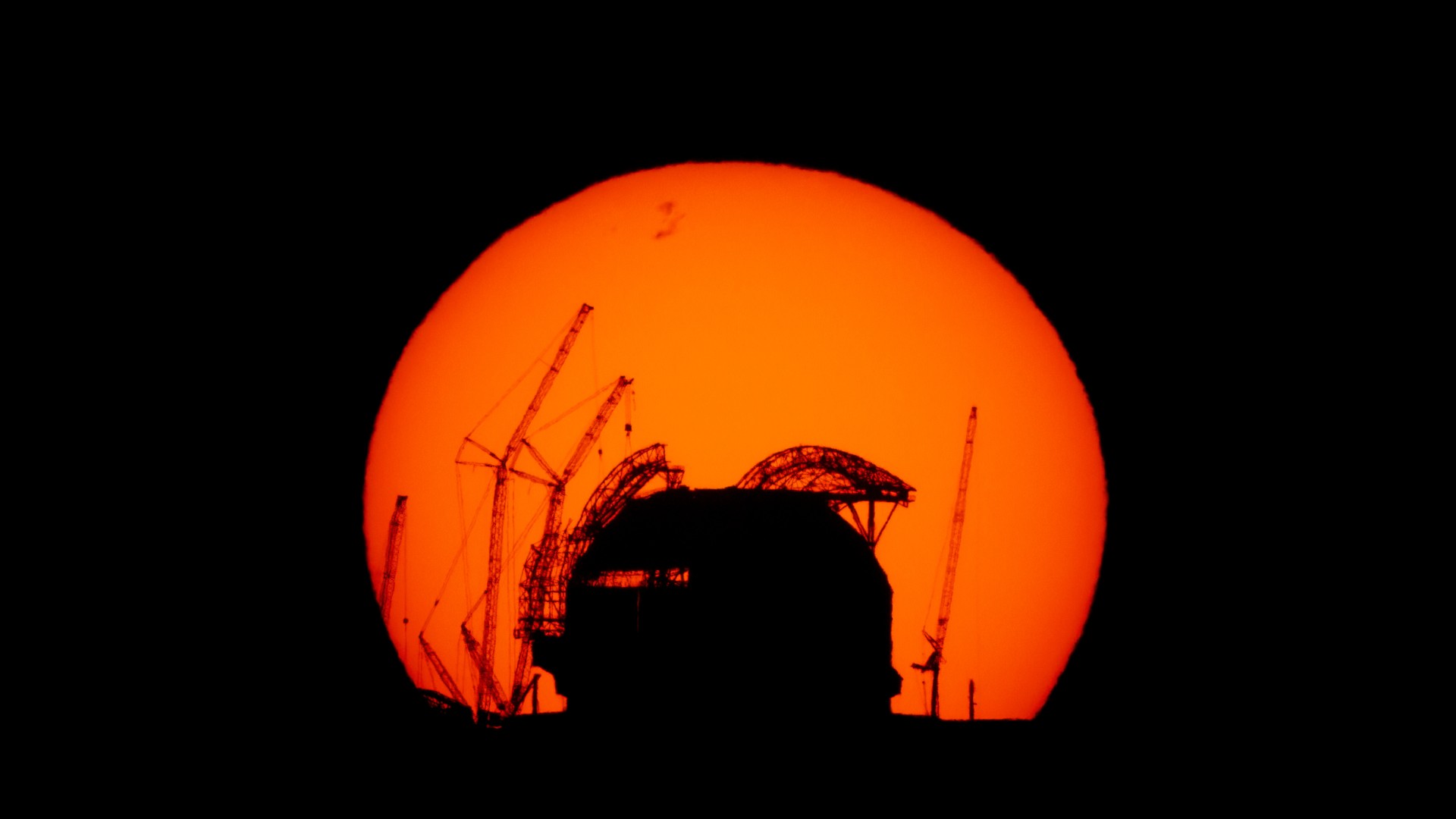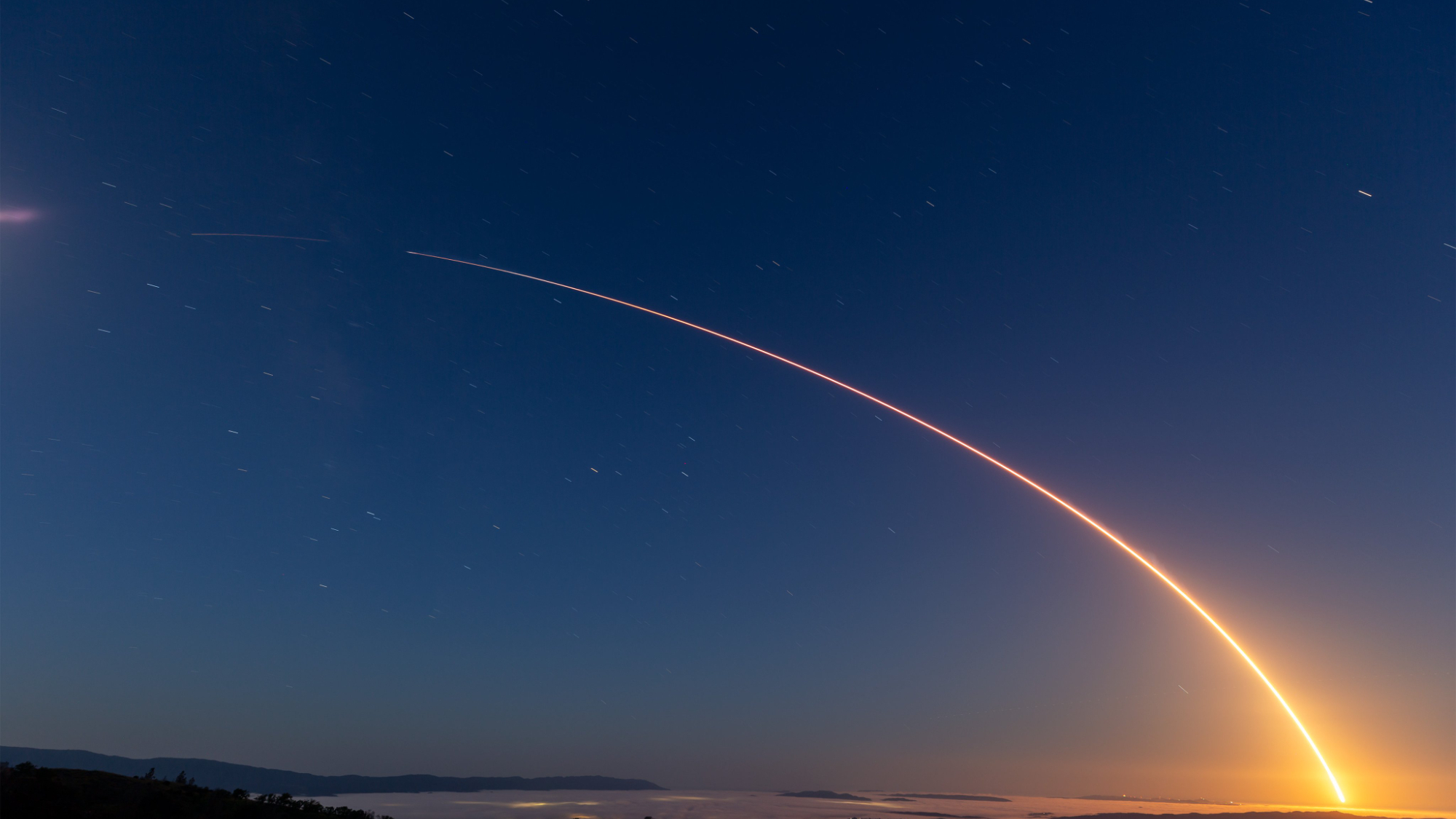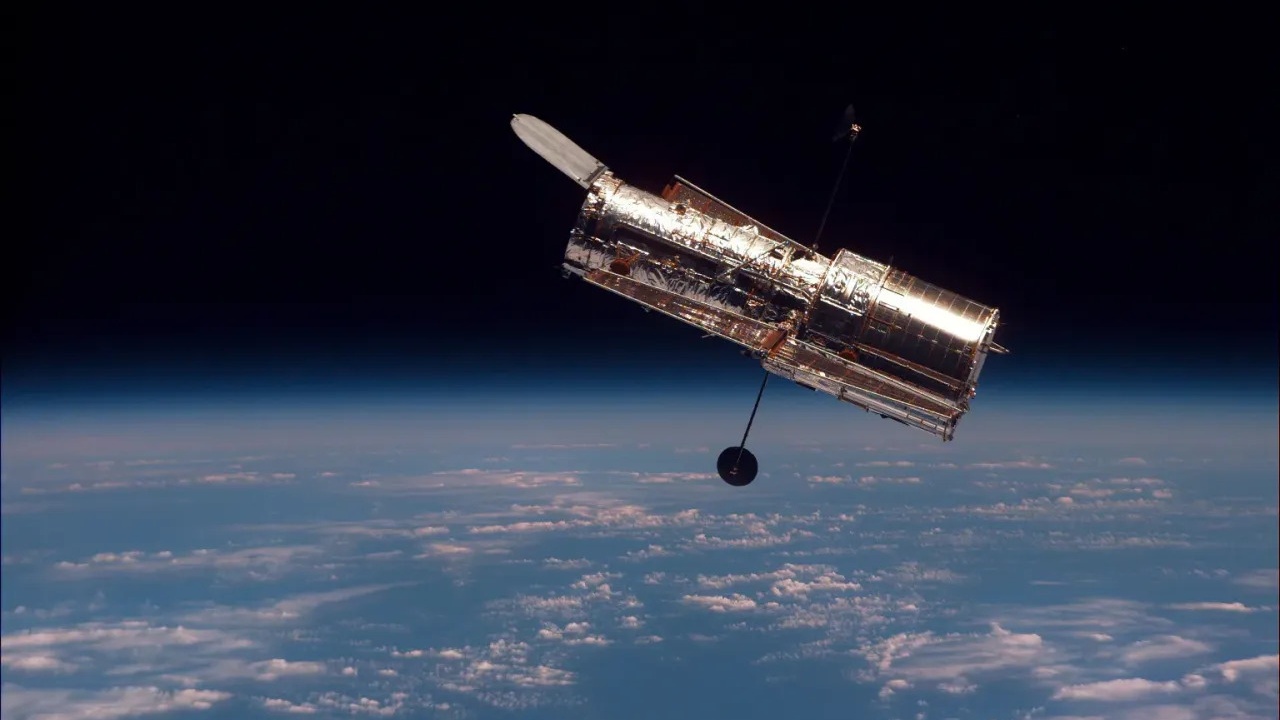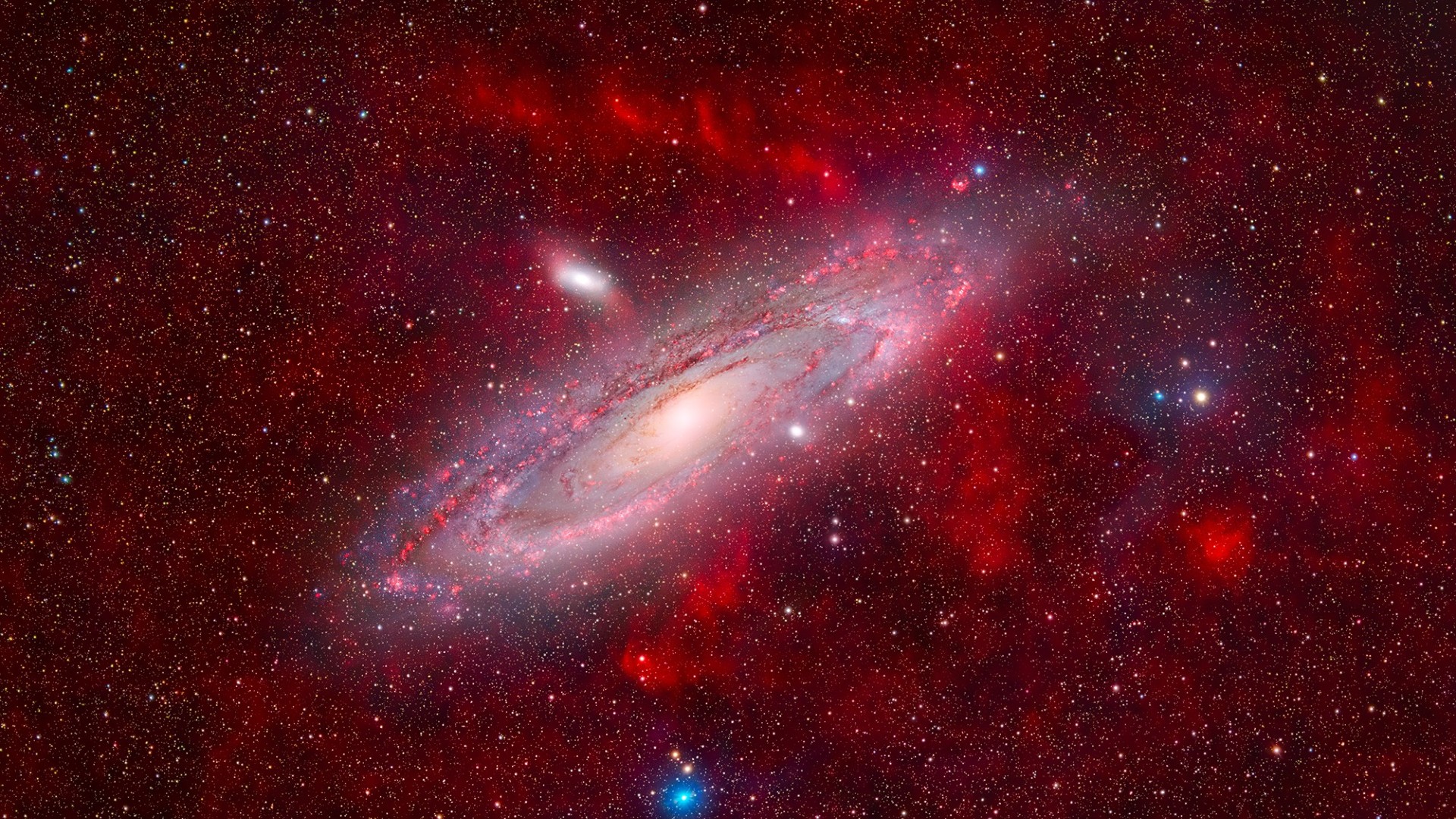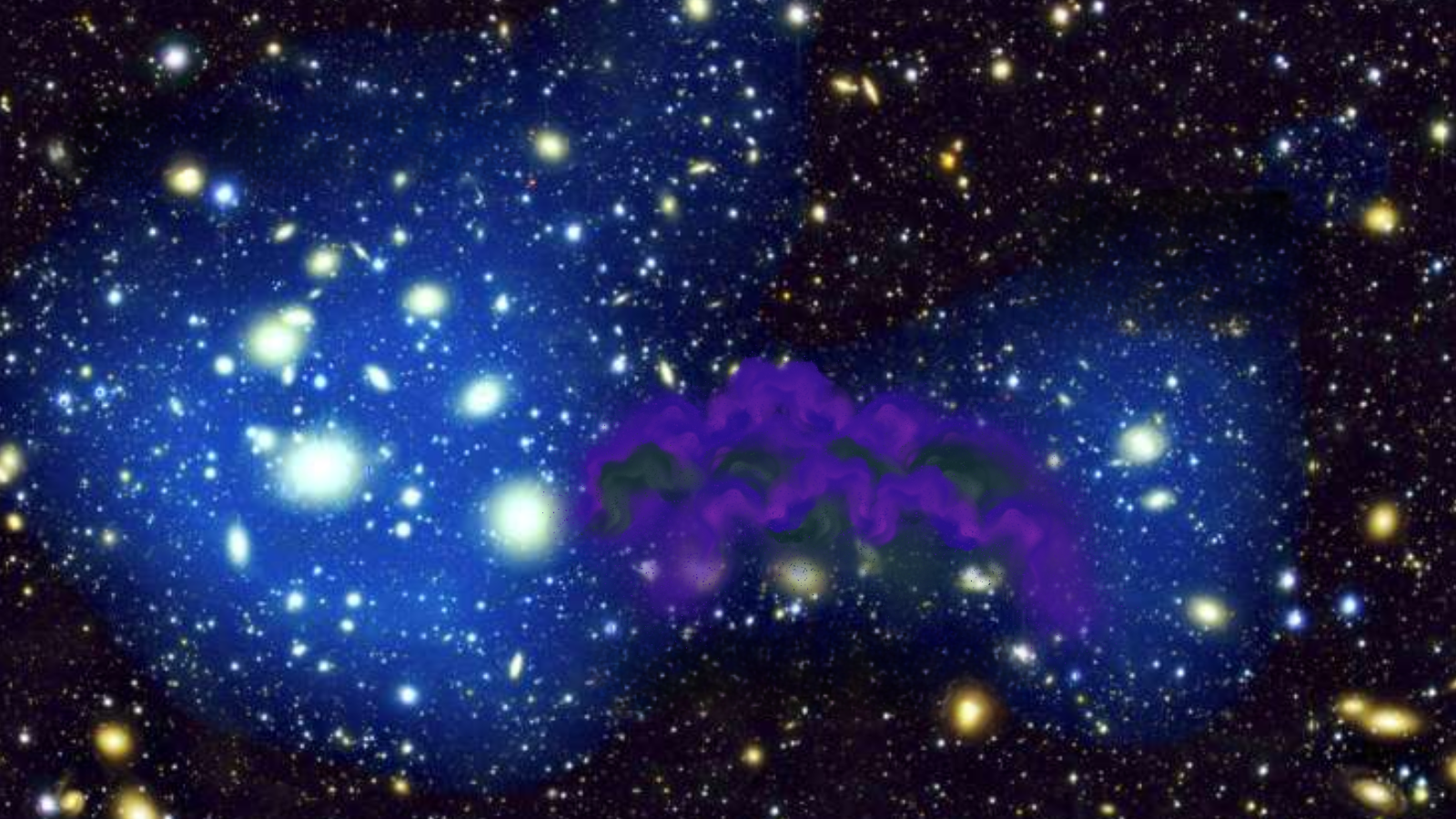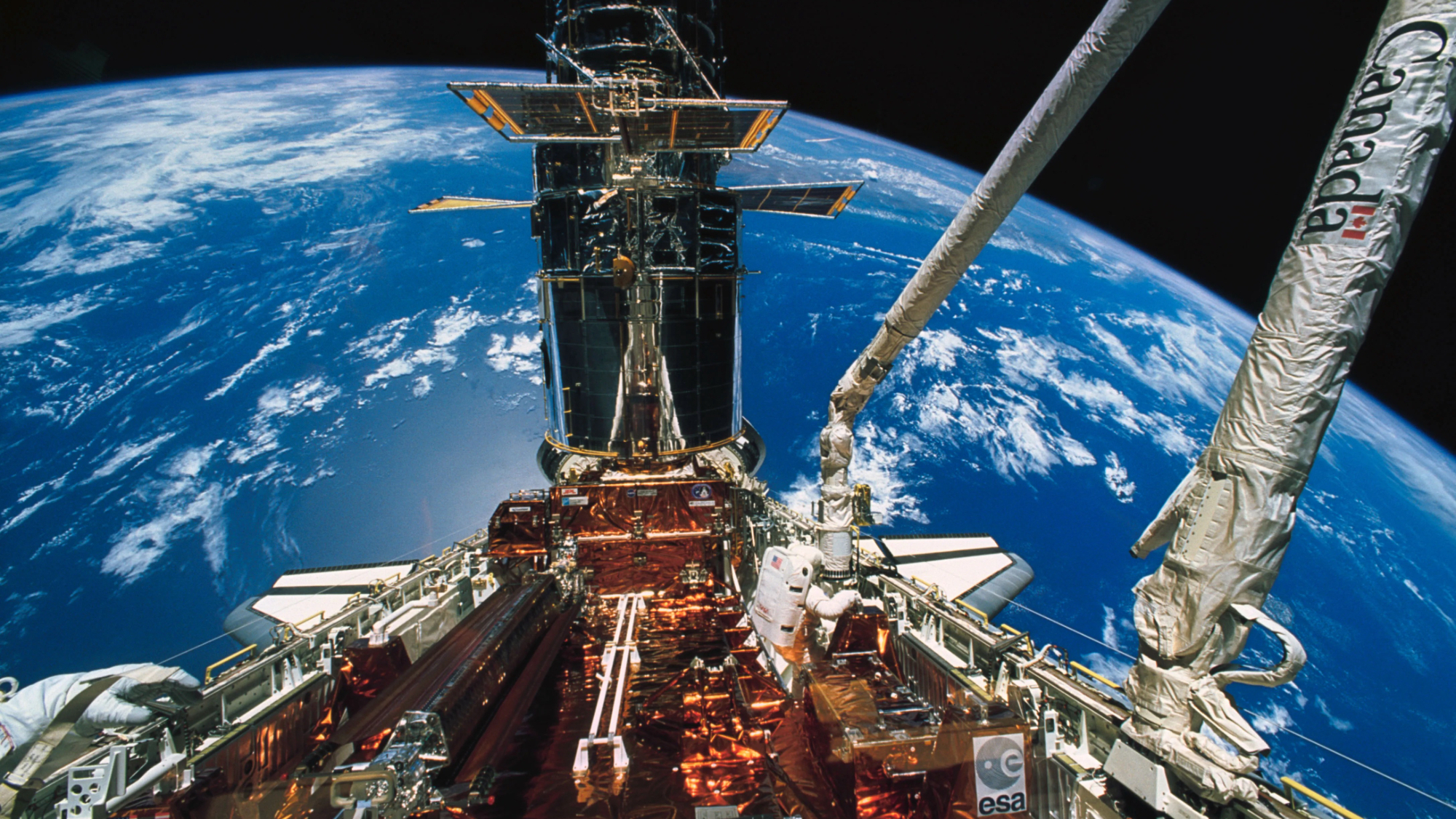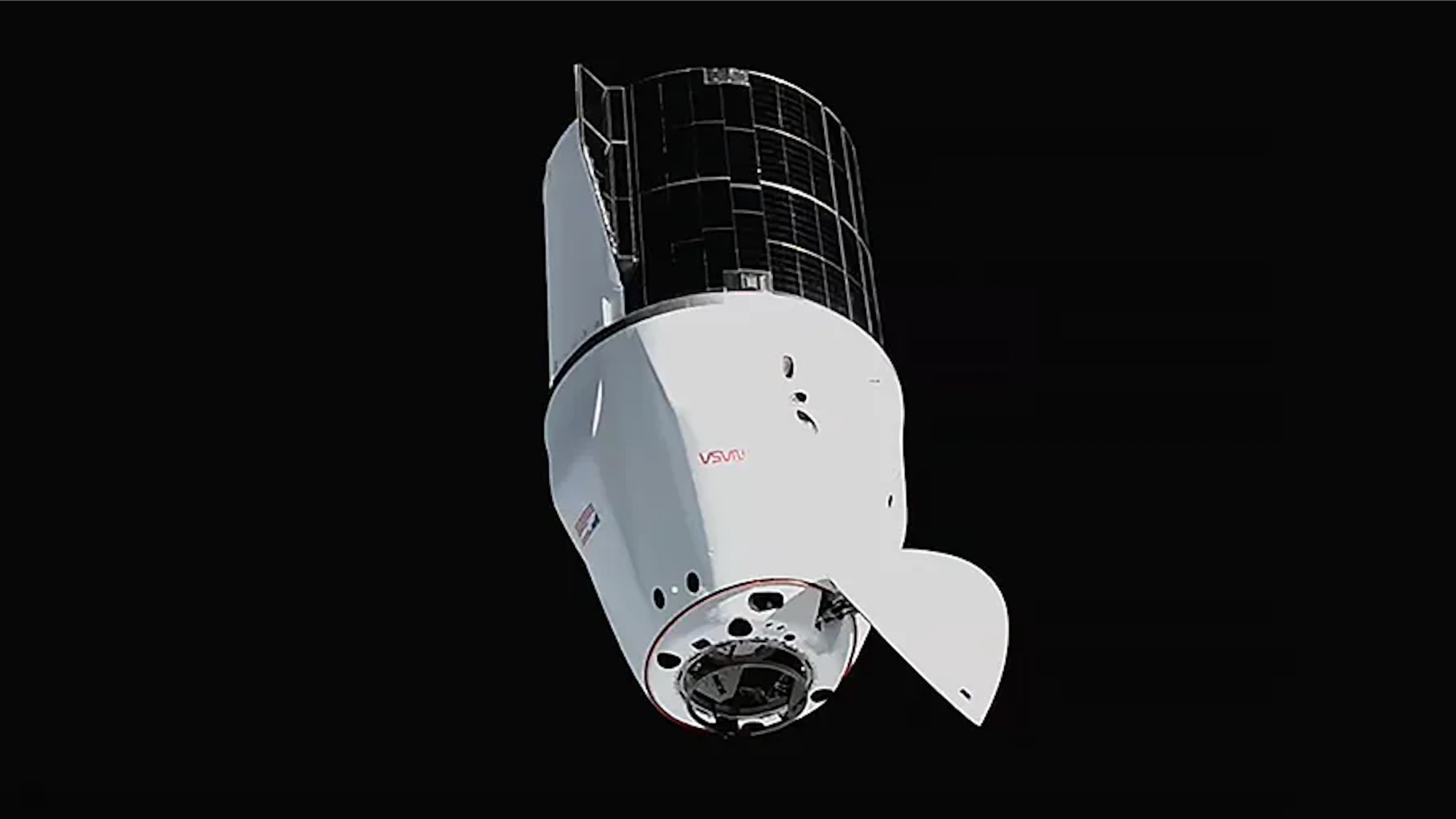'Unexpected odor' on Russian spacecraft delays cargo delivery for ISS astronauts
The spacecraft is docked, but the hatch can't be opened for good yet.
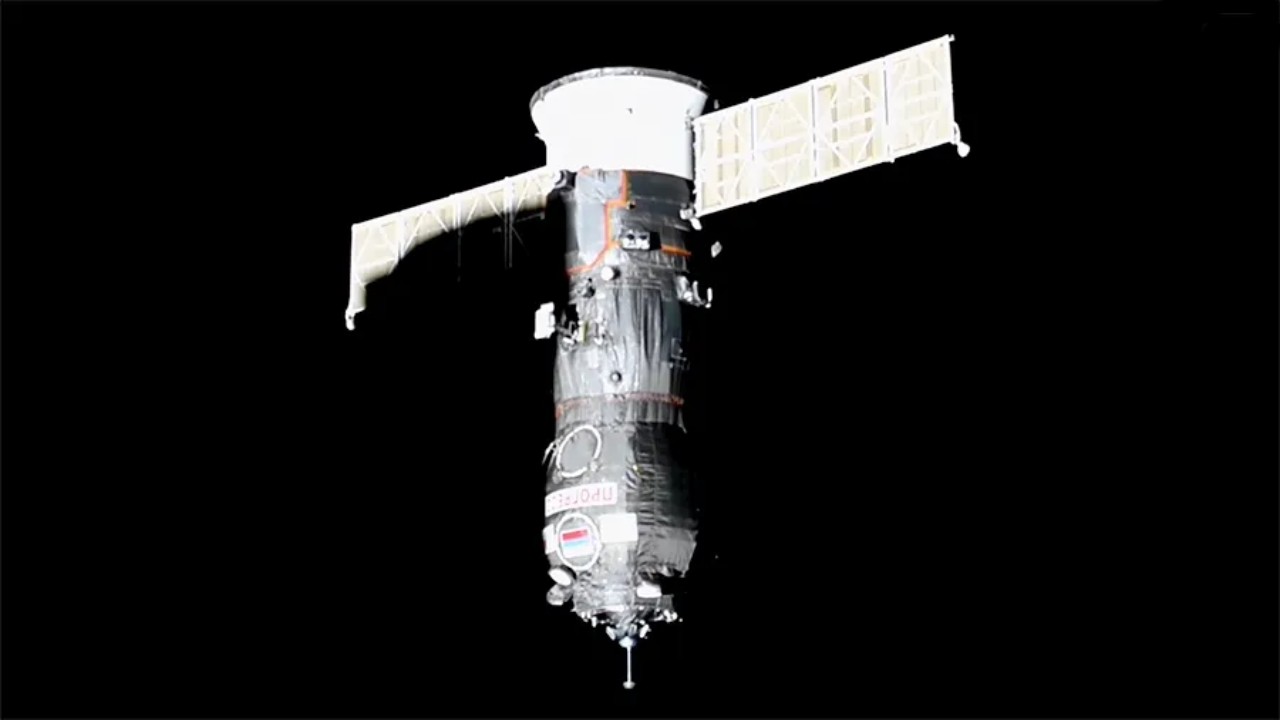
Astronauts found an "unexpected odor" after trying to open the door to a new cargo spacecraft at the space station, according to NASA.
A Russian Progress spacecraft docked at the International Space Station on Saturday (Nov. 23) at the Russian Poisk module after its launch on Nov. 21. But astronauts couldn't keep the spacecraft hatch open for long to retrieve fresh food, supplies and equipment due to a stench coming from the capsule.
"After opening the Progress spacecraft's hatch, the Roscosmos cosmonauts noticed an unexpected odor and observed small droplets, prompting the crew to close the Poisk hatch to the rest of the Russian segment," NASA officials wrote on X, formerly Twitter, on Sunday (Nov. 24). The crew is not in danger and efforts to open the spacecraft are ongoing, the agency stressed.
Related: Russian Soyuz rocket launches supplies to ISS on 90th Progress cargo spacecraft (video)
After Russian cosmonauts closed the hatch, air scrubbers and contaminant sensors on the ISS "monitored the station's atmosphere" and flight controllers said the air quality of the ISS "was at normal levels," NASA noted.
The Russian cosmonauts who opened the hatch to the Progress spacecraft briefly wore extra protective equipment as a precaution, RussianSpaceWeb stated; journalist Anatoly Zak was monitoring the communications between Mission Control in Houston and the ISS on Saturday.
NASA astronaut Don Pettit reported a "spray-like smell" in the Tranquility or Node 3 module in the U.S. segment, but Zak noted it was unclear if that smell came from the Progress spacecraft. Node 3 is not directly connected to the Russian segment.
Get the Space.com Newsletter
Breaking space news, the latest updates on rocket launches, skywatching events and more!
Also, by coincidence, the hatch between the Russian side and the U.S. side of the space station is often closed these days anyway. That is because of an ongoing air leak on the Russian side that has been happening for five years. NASA has stressed the leak is not an immediate danger to the crew, but NASA and Roscosmos disagree as to the leak's cause and remedy and whether it poses a longer-term critical risk to the ISS integrity.
Progress is expected to remain docked with the space station for several months before departing in 2025 with a load of trash and other unneeded items, to burn up in Earth's atmosphere.
Other Russian ships have faced coolant leaks in recent years, most dramatically an incident in December 2022 in which a Soyuz crewed spacecraft leaked so much coolant that Roscosmos eventually sent up a replacement to send three astronauts back home, doubling their six-month stay to a year. Another Progress cargo spacecraft had a coolant leak two months afterwards, in February 2023.
There is no immediate link between these past incidents and the ongoing Progress situation, however.
Join our Space Forums to keep talking space on the latest missions, night sky and more! And if you have a news tip, correction or comment, let us know at: community@space.com.

Elizabeth Howell (she/her), Ph.D., was a staff writer in the spaceflight channel between 2022 and 2024 specializing in Canadian space news. She was contributing writer for Space.com for 10 years from 2012 to 2024. Elizabeth's reporting includes multiple exclusives with the White House, leading world coverage about a lost-and-found space tomato on the International Space Station, witnessing five human spaceflight launches on two continents, flying parabolic, working inside a spacesuit, and participating in a simulated Mars mission. Her latest book, "Why Am I Taller?" (ECW Press, 2022) is co-written with astronaut Dave Williams.
-
Coinneach My mother, who is in her nineties, wondered if a cat had got into the spacecraft!Reply
:eek: -
starman2 I heard they activated routine air-scrubbing and the odor subsided. They said it was from outgassing of materials onboard the cargo spacecraft, and cargo transfer operations proceeded on schedule.Reply -
Hildy Given the status of the Russian space program, I would guess that somebody used a paint rattle can to cover up a scratch.Reply -
modelrocketman Reply
As I recall I've read they do sometimes send up fresh food to be enjoyed quickly? Maybe something spoiled on ascent for some reason or another or as another said, maybe a pressurized can of something was compromised and ejected some contents. "I'm sure they could have recognized the smell of "Cheese Whiz" :-) if that's what ruptured.Admin said:A Progress spacecraft at the ISS has a strange smell and unusual droplets after arriving at the ISS, NASA reported. Troubleshooting is ongoing, but its hatch is closed for now.
Russian cargo spacecraft's 'unexpected odor' delays delivery to astronauts on ISS : Read more -
starman2 If the odor was from 'outgassing', it could be anything newly manufactured made from plastics, even food packaging.Reply
People differ over their sensitivity to outgassing materials. I once heard of all kinds of complaints of mail-order items that came factory-direct to people's residences. Some complained so much they wanted their money back, while others took it for granted and just let their goods sit outside for awhile. -
Coinneach Replystarman2 said:If the odor was from 'outgassing', it could be anything newly manufactured made from plastics, even food packaging.
People differ over their sensitivity to outgassing materials. I once heard of all kinds of complaints of mail-order items that came factory-direct to people's residences. Some complained so much they wanted their money back, while others took it for granted and just let their goods sit outside for awhile.
Was it like the smell of a new car?
